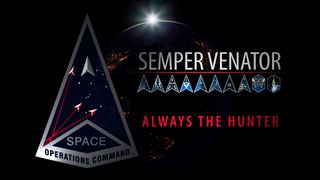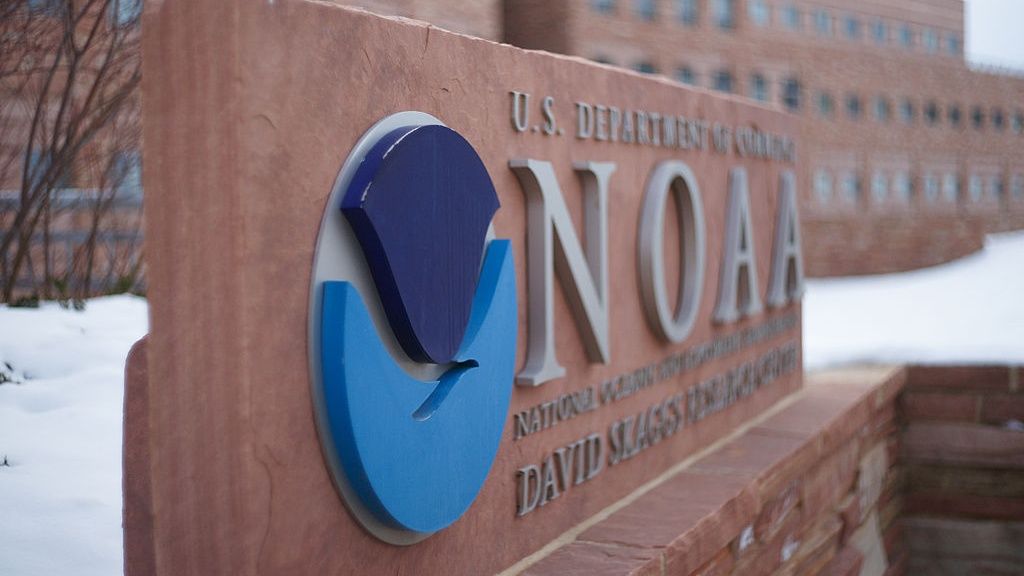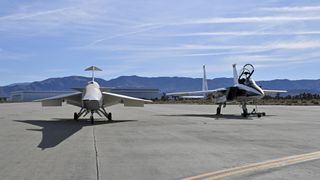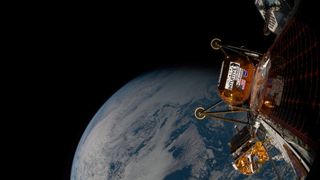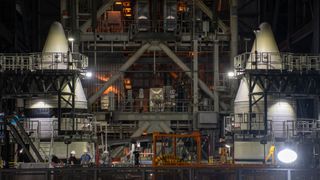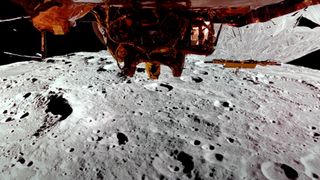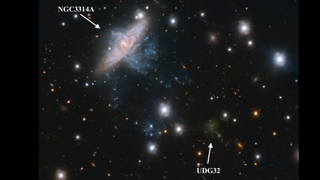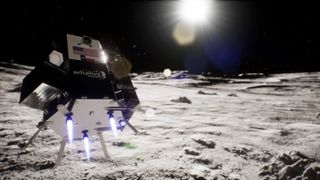US Space Operations Command recently unveiled a new motto: “Semper Venator,” Latin for “Always the hunter.” In a new video featuring a score of crunchy metal guitars and a thumping drumbeat under spacy orchestral notes, the short video begins with a nod to the Orion constellation, named after a hunter from Greek mythology. The rest of the video is a montage of U.S. Space Force members carrying out their duties. The U.S. Space Force was established in 2019. The following year, on Oct. 21, the fledgling military branch activated Space…
Read MoreCategory: The Moon
Our moon
Scientists warn of consequences as over 800 NOAA workers are fired: ‘Censoring science does not change the facts’
Scientists warn that the Trump administration’s abrupt firing of hundreds of weather forecasters and climate experts across NOAA will curtail important climate research and could result in preventable deaths during extreme weather events and related disasters. Over 800 employees across most divisions of the National Oceanic and Atmospheric Administration (NOAA) — a premier U.S. federal agency at the forefront of climate research that provides timely weather forecasts to the public for free — were dismissed in mass layoffs that began Thursday afternoon (Feb. 27). The cuts targeted probationary employees, a…
Read MoreNASA’s X-59 quiet supersonic jet clears ‘major hurdle’ ahead of 1st flight (photos)
NASA’s experimental X-59 aircraft continues to make progress toward its first flight with a new successful round of testing. The X-59 “quiet” supersonic jet was designed to break the sound barrier without producing the thunderous sonic booms that typically accompany supersonic flight. And based on the results of the vehicle’s latest tests, conducted at the Lockheed Martin Skunk Works facility in Palmdale, California, the X-59 might accomplish that feat soon. NASA and Lockheed Martin, the latter of which built the X-59, recently put the aircraft through electromagnetic interference testing on…
Read MorePrivate Athena moon lander beams home gorgeous views of Earth from space (photos)
A newly launched lunar lander just captured some stunning shots of its home planet. Athena, the second moon lander from Houston-based company Intuitive Machines, launched atop a SpaceX Falcon 9 rocket from Florida’s Space Coast on Wednesday evening (Feb. 26). Shortly after deploying into the final frontier, Athena snapped a few selfies with Earth in the background, including one that shows the Falcon 9‘s upper stage drifting in the void beneath the lander. (Bright specks visible near the rocket stage may be some of the other payloads that launched with…
Read MoreNASA must ‘consider alternatives’ to put Artemis astronauts on the moon, experts tell US Congress
The U.S. is in a race with China to get to the moon, amid potential changes to the Artemis program and turmoil at NASA, according to a House hearing on Wednesday. As Intuitive Machines’ IM-2 lunar lander sat on the pad awaiting its nighttime launch, a meeting of the House Committee on Science, Space and Technology’s space and aeronautics subcommittee took place on Feb. 26 to discuss the next steps of the Artemis program and how it plays into efforts to get to Mars. In the hearing, titled “Step by…
Read MorePrivate Blue Ghost lander sees far side of the moon in breathtaking detail ahead of lunar landing (video)
Firefly Aerospace’s Blue Ghost lunar lander is sharing some amazing views from just above the moon. Blue Ghost beamed home gorgeous, up-close shots of the moon‘s far side on Feb. 24, just after lowering its orbit ahead of a Sunday morning (March 2) landing attempt. “That feeling you get when you look out the window and realize you’re almost home!” Texas-based Firefly wrote in a Feb. 26 X post, which shared a 93-second video of the Blue Ghost footage. Firefly Aerospace’s Blue Ghost lunar lander snapped this shot of the…
Read MoreSpaceX rocket launches private moon lander and NASA ‘trailblazer’ to hunt for lunar water (video)
CAPE CANAVERAL, Fla. — The private Athena lunar lander is on its way to the moon. A SpaceX Falcon 9 rocket lifted off shortly after sunset this evening (Feb. 26), carrying Athena and NASA’s ride-along Lunar Trailblazer orbiter aloft against a darkening sky here at NASA’s Kennedy Space Center (KSC). Athena — which was built by the Houston-based spaceflight company Intuitive Machines — carries 10 NASA science instruments, many of which are designed to hunt for signs of water ice. Lunar Trailblazer will do similar work from its higher perch.…
Read MoreThese dwarf galaxies in the Hydra cluster are baffling scientists: ‘We found something we didn’t expect’
Astronomers have discovered something surprising about the universe’s smallest and faintest class of galaxies: Ultra-Diffuse Galaxies (UDGs). A research team studying these galaxies found that around half of the ones they investigated showed signs of motion that defy previous theories about the formation and evolution of such realms. In particular, the team found an unexpected rotational motion of stars within many of these dwarf galaxies. The scientists reached these findings while studying stellar motion in 30 UDGs in the Hydra galaxy cluster located over 160 million light-years away from us.…
Read MoreNASA leadership shakeup continues as agency settles into Trump’s 2nd term
NASA continues to reshape its leadership tier. The agency announced a number of personnel moves on Monday (Feb. 24), including the selection of Vanessa Wyche as acting associate administrator. “Vanessa will bring exceptional leadership to NASA’s senior ranks, helping guide our workforce toward the opportunities that lie ahead,” NASA Acting Administrator Janet Petro said in a statement on Monday. The associate administrator serves as NASA’s chief operating officer, overseeing its 18,000 employees and nearly $25 billion budget, agency officials wrote in the statement. Wyche succeeds Jim Free, who retired a…
Read MoreShooting for the moon, Intuitive Machines to launch daring lunar lander for NASA on Feb. 26
CAPE CANAVERAL, Florida — Intuitive Machines is poised to launch its second lunar lander in as many years, marking a significant milestone in commercial space exploration. The mission, known as IM-2, is set to lift off on a SpaceX Falcon 9 rocket from NASA’s Kennedy Space Center here on Florida’s Space Coast on Wednesday (Feb. 26), at 7:17 p.m. EST (0017 GMT on Feb. 27). You’ll be able to watch the liftoff live via NASA and/or SpaceX when the time comes. The spacecraft, an Intuitive Machines Nova-C lander named Athena,…
Read More